Rev. Elizabeth Bier 2002-2004
Elizabeth is from Twin Cities, and currently lives in Greenwood, WI and serves at ONE in Christ Lutheran Parish.
Q: What’s your LVC story?
A: I served as an LVC volunteer for two years during 2002-2004 in the Twin Cities. I lived in St. Paul at the Beth Shalom House my first year and then at the Winona House in Minneapolis my second year. I joined LVC because I wanted to put my Christian Lutheran faith into action through service in the U.S. I served at the MN Council of Churches – Refugee Services program (MCC). I was hired into a full-time position at MCC after my LVC years and worked there for another two years before heading to Luther Seminary. I later worked for LVC from summer 2013-early 2019. As with many LVC employees, I worked in a variety of capacities, starting as an interim Twin Cities Regional Director, then in Operations and Recruiting, ending my time overseeing LVC’s recruiting plan, having been ordained as an ELCA pastor to my position as Recruitment and Outreach Manager. My work with LVC took me from the Twin Cities to DC, and to many campuses in between.
Q: What are the top 3 ways LVC changed or impacted your life?
A: The anti-racism training we received at LVC orientation and program days via the Crossroads organization provided me the first comprehensive anti-racism training I’d received up to that point and laid the groundwork for my lifelong anti-racism work, reflection on my white privilege and interrupting systems of power and privilege.
I am eternally grateful for my LVC placement at the MN Council of Churches – Refugee Services office. Through working in the refugee resettlement field, I met incredible people and heard their stories of tenacity and hope as they navigated unimaginable (to me) journeys to their new lives of hope and opportunity in MN. I learned about the worldwide migration patterns because of human and natural disasters, better understood the systemic racism at play in our U.S. immigration policy and heard more first-hand experiences of discrimination based on race, ethnicity, language and citizenship status. Relationships and learning from that time have helped me debunk immigration myths whenever they come up, read scripture through a migration lens and kept me engaged as a global citizen of our world.
Living in community during my LVC years helped me grow as a person in my young adult years. Having to negotiate household responsibilities and expectations of one another helped me conflict avoidance and passive-aggressive behaviors I didn’t realize I had! The intentional living conversations were so helpful in shared living and work arrangements to the present.
Q: Why do you support LVC?
A: I support LVC because I think that a year of service is truly transformative, and I want to make sure it is available to all who want to participate. I also value the capacity-building that full-time stipended volunteers provide to non-profit organizations. During my time at LVC as a volunteer and as a staff member, I saw many organizations expand their impact because of our partnership in this ministry.
Q: What are you doing now and how is it related to your LVC experience?
A: I am approaching two years at my new pastoral call after leaving LVC and feeling my feet under me more now, even with the pandemic. I am serving a 3-point parish in northwestern Wisconsin in a county where my Sunday morning traffic is horse-drawn buggies and tractors in a community that is over 90% white.
While this sometimes feels light years away from my LVC years and previous call at a multi-ethnic congregation, I give so much thanks for the ways my commitments to justice, simplicity, forming community and seeking active spirituality continue to live and thrive here, especially in places that need to have white supremacy culture shook up and need more people working for LGBTQIA inclusion. Part of this shaking up is waking up to white privilege, and walking with members of my parish through sermons, book studies, trainings and conversations. Some of our local in-person relationship building is on hold at the moment due to the pandemic. I am also active in my synod’s racial justice team and will be helping to facilitate Transforming White Privilege trainings in 2021. I try to keep things sustainable by buying from area small businesses and we have a lot of options for local produce from Amish and Mennonite farmers. I am also learning from my parish members about environmental justice issues related to farming and animal husbandry.

